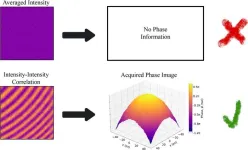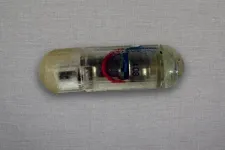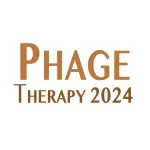(Press-News.org) This whirling image features a bright spiral galaxy known as MCG-01-24-014, which is located about 275 million light-years from Earth. In addition to being a well-defined spiral galaxy, MCG-01-24-014 has an extremely energetic core known as an active galactic nucleus (AGN) and is categorized as a Type-2 Seyfert galaxy. Seyfert galaxies, along with quasars, host one of the most common subclasses of AGN. While the precise categorization of AGNs is nuanced, Seyfert galaxies tend to be relatively nearby and their central AGN does not outshine its host, while quasars are very distant AGNs with incredible luminosities that outshine their host galaxies.
There are further subclasses of both Seyfert galaxies and quasars. In the case of Seyfert galaxies, the predominant subcategories are Type-1 and Type-2. Astronomers distinguish them by their spectra, the pattern that results when light is split into its constituent wavelengths. The spectral lines that Type-2 Seyfert galaxies emit are associated with specific ‘forbidden’ emission lines. To understand why emitted light from a galaxy could be forbidden, it helps to understand why spectra exist in the first place. Spectra look the way they do because certain atoms and molecules absorb and emit light at very specific wavelengths. The reason for this is quantum physics: electrons (the tiny particles that orbit the nuclei of atoms and molecules) can only exist at very specific energies, and therefore electrons can only lose or gain very specific amounts of energy. These very specific amounts of energy correspond to the wavelengths of light that are absorbed or emitted.
Forbidden emission lines should not exist according to certain rules of quantum physics. But quantum physics is complex, and some of the rules used to predict it were formulated under laboratory conditions here on Earth. Under those rules, this emission is ‘forbidden’ – so improbable that it’s disregarded. But in space, in the midst of an incredibly energetic galactic core, those assumptions don’t hold anymore, and the ‘forbidden’ light gets a chance to shine out toward us.
END
Hubble sights a galaxy with ‘forbidden’ light
2023-12-22
ELSE PRESS RELEASES FROM THIS DATE:
Images hidden in noise revealed by a quantum-inspired method
2023-12-22
Researchers at the University of Warsaw's Faculty of Physics with colleagues from Stanford University and Oklahoma State University have introduced a quantum-inspired phase imaging method based on light intensity correlation measurements that is robust to phase noise. The results of the research have been published in the prestigious journal “Science Advances”. The new imaging method can operate even with extremely dim illumination and can prove useful in emerging applications such as in infrared and X-ray interferometric imaging and quantum and matter-wave ...
Engineers develop a vibrating, ingestible capsule that might help treat obesity
2023-12-22
When you eat a large meal, your stomach sends signals to your brain that create a feeling of fullness, which helps you realize it’s time to stop eating. A stomach full of liquid can also send these messages, which is why dieters are often advised to drink a glass of water before eating.
MIT engineers have now come up with a new way to take advantage of that phenomenon, using an ingestible capsule that vibrates within the stomach. These vibrations activate the same stretch receptors that sense when the stomach is distended, creating an illusory sense of fullness.
In animals who were given this ...
Novel ingestible devices developed to create the illusion of satiety
2023-12-22
Obesity interventions, such as gastric bypass surgery, can alter the signaling of the vagal nerve, which plays a crucial role in regulating digestion. In addition to traditional obesity interventions, new weight-management medications, such as Wegovy, are becoming increasingly popular options for patients with obesity since they are non-invasive and require minimal lifestyle modifications. Developing a variety of non-invasive, convenient weight-management options for patients with obesity is essential to help reduce comorbidities such as diabetes, hypertension, cancer ...
The stomach bug that may raise your risk of Alzheimer’s disease
2023-12-22
A common stomach bacteria found in two thirds of the world population may be linked to a higher risk of Alzheimer’s disease, new research suggests.
The study, published in Alzheimer's & Dementia: The Journal of the Alzheimer's Association, investigated whether a clinically apparent Helicobacter pylori (H. pylori) infection increased the risk of Alzheimer's disease in people aged 50 and older. The prevalent infection can trigger indigestion, gastritis, ulcers, and even stomach cancer.
A team of McGill University researchers analyzed health data of over 4 million people in the United Kingdom aged 50 and above between 1988 and 2019. It found ...
Malta Targeting Phage Therapy 2024: The next clinical revolution
2023-12-22
Building on the momentum of the 6th World Congress on Targeting Phage Therapy, that gathered more than 150 attendees from over 30 countries and featured over 71 presentations, the highly anticipated Targeting Phage Therapy 2024 is set to unfold.
Mark Your Agendas for the 7th World Congress on Targeting Phage Therapy
Date: June 20-21, 2024
Location: Corinthia Palace, Malta
What to Expect:
Cutting-edge insights into phage therapy advancements and its potential to revolutionize medicine.
Engaging keynotes and expert panels tackling ...
Signed orders sent via mail nearly doubled liver cancer screening rates
2023-12-22
Liver cancer screening among patients with cirrhosis almost doubled when they were mailed a signed order from their specialist, according to a new study from the Perelman School of Medicine at the University of Pennsylvania. However, when researchers added an incentive of $20 to the mailed orders, it made no difference in whether patients completed their screenings. The work was published this week in Hepatology Communications.
“Our findings show that an approach like this can meaningfully increase liver cancer surveillance, ...
Strong connections found between vaccine hesitancy and support for vaccinating pets
2023-12-22
Texas A&M University School of Public Health research on attitudes toward pet vaccination and how they may be linked with human vaccine hesitancy was the subject of a new study recently published in the journal Vaccine.
Simon Haeder, Ph.D., associate professor, analyzed data from an August 2023 survey of more than 2,000 dog and more than 1,400 cat owners to measure pet vaccination rates, perceptions of vaccines and support for pet vaccination requirements.
“Decreasing pet vaccination rates pose challenges to society for a number of reasons, including increased incidents ...
Laser-driving a 2D material
2023-12-22
Writing in Nature Communications on November 24, engineers at Columbia and theoretical collaborators at the Max Planck for the Structure and Dynamics of Matter find that pairing laser light to crystal lattice vibrations can enhance the nonlinear optical properties of a layered 2D material.
Cecilia Chen, a Columbia Engineering PhD student and co-author of the recent paper, and her colleagues from Alexander Gaeta’s Quantum and Nonlinear Photonics group used hexagonal boron nitride (hBN). hBN is a 2D material similar to graphene: its atoms are arranged in a ...
UTHealth Houston researchers find link between lonely veterans and firearm purchases
2023-12-22
Low-income U.S. veterans who are experiencing feelings of loneliness are more likely to purchase firearms, according to new research from UTHealth Houston.
A study led by principal investigator Alexander Testa, PhD, assistant professor, and co-investigator Jack Tsai, PhD, professor, from the Department of Management, Policy and Community Health with UTHealth Houston School of Public Health, was published recently in Social Science & Medicine.
“Loneliness was significantly associated with a higher likelihood ...
Flavonoid supplement reduces swelling after total knee arthroplasty
2023-12-22
Waltham — December 19, 2023 — For patients undergoing total knee arthroplasty (TKA), treatment with diosmin – a flavonoid supplement derived from citrus fruits –reduced swelling of the knee and leg and some measures of associated pain can be achieved, reports a clinical trial in The Journal of Bone & Joint Surgery. The journal is published in the Lippincott portfolio in partnership with Wolters Kluwer.
"The use of diosmin after TKA reduced lower-extremity swelling and pain during motion and was not associated with an increased incidence of short-term complications involving the outcomes studied," according ...




